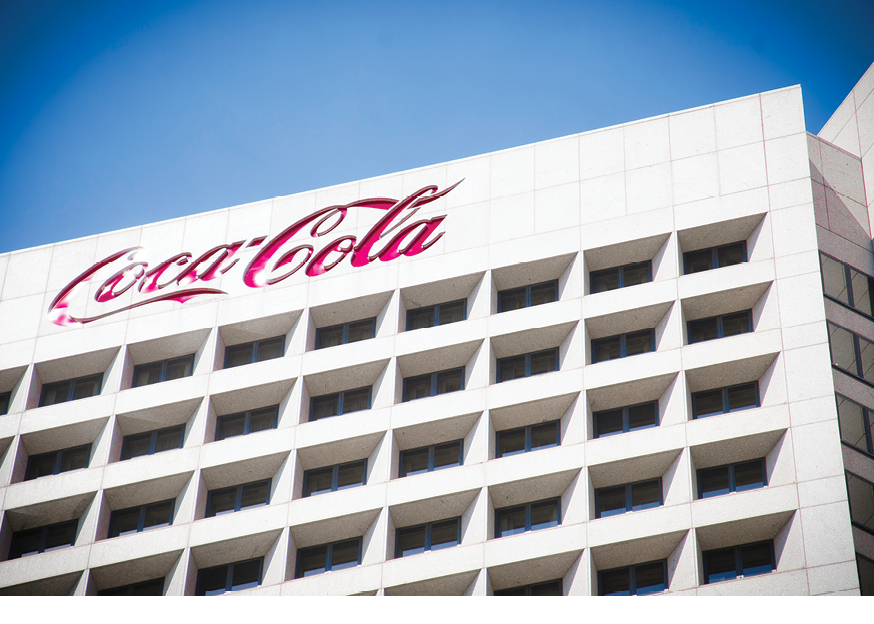- Home
- Media Kit
- Current Issue
- Past Issues
- Ad Specs-Submission
- Ad Print Settings
- Reprints (PDF)
- Photo Specifications (PDF)
- Contact Us

![]()
ONLINE

Where Coke
was Created
Editors’ Note
Muhtar Kent joined The Coca-Cola Company in Atlanta in 1978. In 1985, he was appointed General Manager of Coca-Cola Turkey and Central Asia. From 1989 to 1995, he served as President of the company’s East Central Europe Division and Senior Vice President of Coca-Cola International. Between 1995 and 1998, he served as Managing Director of Coca-Cola Amatil-Europe. From 1999 until his return to The Coca-Cola Company in May 2005, Kent served as President and CEO of the Efes Beverage Group, the majority shareholder of Turkish bottler Coca-Cola Icecek. Kent also served as a board member of Coca-Cola Icecek. He was named President and Chief Operating Officer of The Coca-Cola Company’s North Asia, Eurasia, and Middle East Group from 2005 until early 2006, and served as President of Coca-Cola International through most of 2006 until his appointment as President and Chief Operating Officer of The Coca-Cola Company. He became Chief Executive Officer on July 1, 2008 and Chairman of the Board of Directors on April 23, 2009. Kent holds a bachelor of science degree in economics from Hull University, England, and a master of science degree in administrative sciences from London City University.
Company Brief
Led by Coca-Cola®, The Coca-Cola Company (thecoca-colacompany.com) is the world’s largest beverage company with more than 500 sparkling and still brands including Diet Coke®, Fanta®, Sprite®, Coca-Cola Zero®, vitaminwater®, Powerade®, Minute Maid®, Simply®, and Georgia®. Consumers in more than 200 countries enjoy the company’s beverages at a rate of 1.9 billion servings a day.
Coca-Cola has a long and storied history in Georgia. Would you discuss this relationship?
There’s something really special about the relationship between Coca-Cola and Georgia. Coke was created here in 1886, and it has been embraced and cherished by the people of this state ever since. Generations of Georgians have helped make Coca-Cola the global brand and company that it is today. We proudly employ about 9,000 people in the state and our global headquarters stands just a mile from where Coca-Cola was first served. Georgia is in our DNA, and Coca-Cola is honored to be part of the rich culture and heritage of this great city and state.

Coca-Cola headquarters in Atlanta
What do you see as the strengths of Georgia as a business destination?
There is a youthful, can-do energy in Georgia. In Atlanta, we are neighbors with some of the best educational and research institutions in the world. There is also a base of successful, innovative companies that attract the best and brightest employees, suppliers, and partners. It’s an unbeatable combination of values that Georgia offers.
Coca-Cola supports many causes in Georgia. Would you highlight the company’s philanthropic commitment and involvement in the state?
I believe we should all do our part to make a positive difference in our hometown, our home state, and the broader world beyond. Coca-Cola has been part of the social and economic fabric of Georgia since its creation, along the way helping establish and expand some of the state’s most iconic institutions from Emory University to the Center for Civil and Human Rights to the Woodruff Arts Center. We hope to continue to build on this legacy as we invest locally for generations to come.
How critical is a strong public/private partnership in Georgia when addressing the needs of the state?
One of Georgia’s greatest strengths is a lively and robust spirit of private/public partnership that has helped this state grow and thrive, particularly over the past half-century or so. The Coca-Cola Company and our bottling partners have been committed to this longstanding partnership because we know our business can only be as strong as the communities where we live, work, and serve. Nowhere is this truer than Georgia, where thousands of Coca-Cola associates give countless volunteer hours and millions of dollars each year to support cultural causes, educational and religious institutions, and businesses of all kinds.•